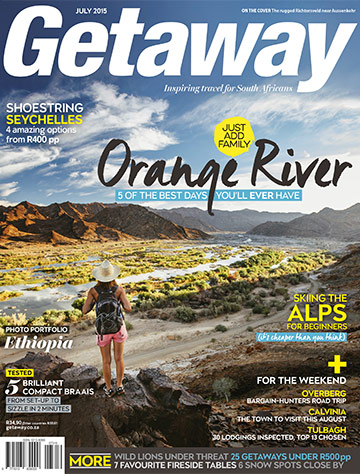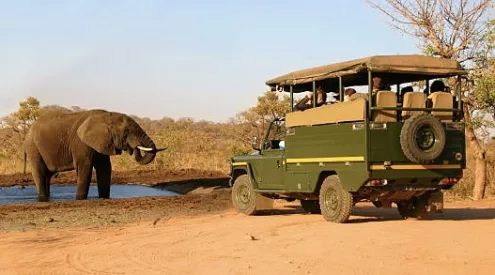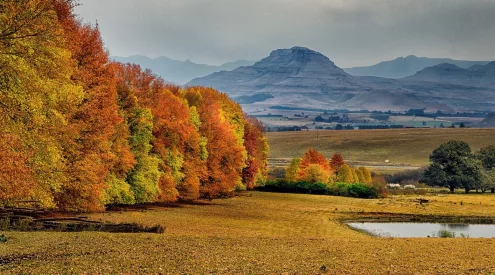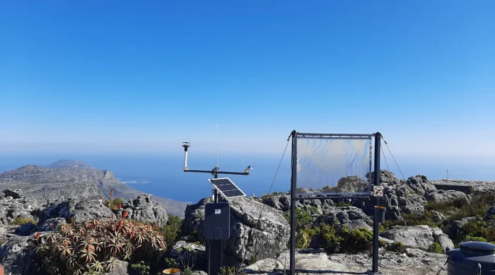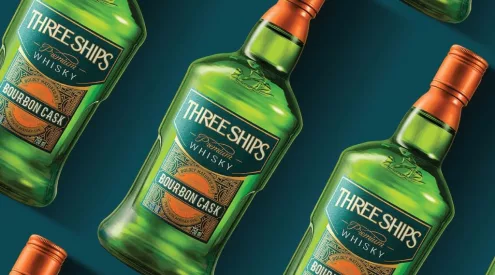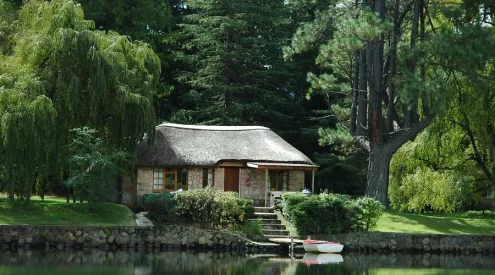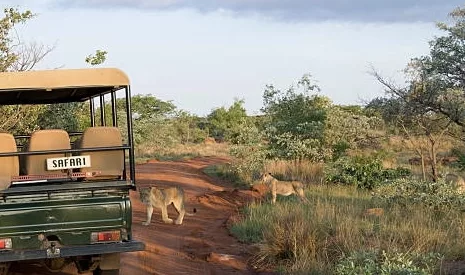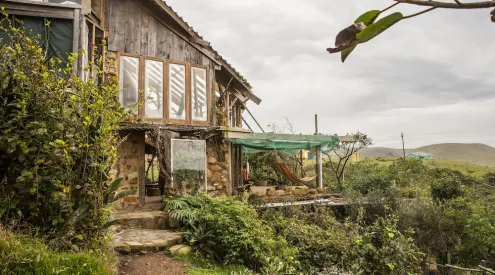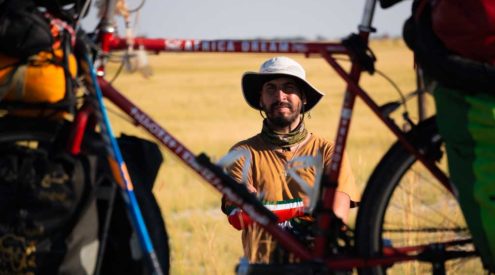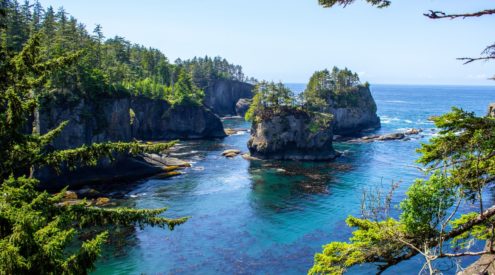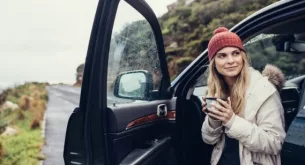Taking a path less trodden presents our columnist with an exercise in nature.
Also read: Marine Walk at De Hoop Nature Reserve
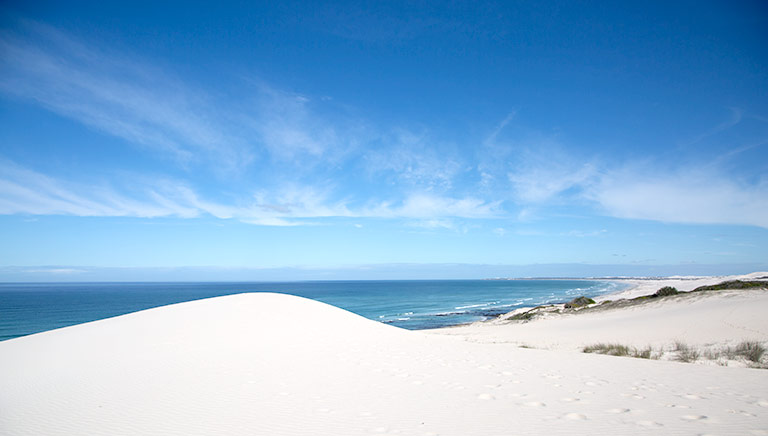
‘Wait!’ I cried pitifully. ‘Not so fast! Don’t leave me behind!’
But out in the burning sands it’s every man for himself. Michael just lowered his head and leant forward into the heat and kept on walking. I sank to my knees with an unpleasant gasping sound and wondered if it would hurt when the crabs started on my flesh and how long it would take before I was just a small peaceful parcel of sun-bleached bones.
We were walking the Whale Trail, just Michael and me ‒ five days of solitude and foot-slogging through the wild beauty of the De Hoop Nature Reserve ‒ and this was the fourth day, the brutal day when you leave the footpaths and take to the beach. A beach is a mighty pleasant thing when you’re strolling the water’s edge with your sweetheart, with your shoes daintily in one hand and a glass of wine in the other, but it’s less fun when you’ve already hiked ten rough kilometres that day and it’s high tide and the available sand is as dry and fine and loose as banks of sugar so that you sink to your ankle with each step and the noonday sun presses down like a bad conscience.
Plus, Michael’s not my sweetheart, he’s my pal, and when we stepped onto the beach I was feeling quietly confident. Michael is shorter than I am, with stubbier, hairier legs, and he smokes like a grizzled dwarf in a Tolkien novel; he had been coughing and wheezing through the mountainous sections so I was confident I could walk the beach better than him, and every foolish man knows that when you’re out there doing something physical, it doesn’t matter how much you’re suffering, so long as one of your pals is suffering more than you.
But something weird happened on that beach. As I became bogged down, like a turtle triple-jumping through syrup, Michael became stronger. It was as though he was built for sand. His little legs whirled like egg beaters; he scuttled away up the shore like a hungry scarab beetle.
I tried to keep up but I couldn’t. I gritted my teeth and plodded on but he just kept getting further away. After an hour I could go no further. I sank to my knees and prepared to embrace a salty, sunburnt death. Michael turned around and walked back. ‘If you step in my footprints,’ he said, ‘it will be easier.’
He was right. In the hollow of his footsteps the sand was more compacted. It wasn’t anything like walking on firm ground but it was easier than it had been. Maybe it was the sun boiling my head but as I slogged after him, putting my feet where his had been, it felt like the beach was teaching me an important lesson: that life is easier when you walk in the footsteps of another, that letting a friend lead can make the earth more firm beneath you. Yes! How simple yet how beautiful! If only everyone could learn such lessons, we’d all be happy forever!
But after a few minutes I started getting irritated. He has shorter legs than me, so his steps are so much shorter. It’s annoying to shorten my stride. It’s frustrating; it makes me lose my balance. Why can’t he stride properly? This isn’t natural! I can’t walk the way someone else walks! I’m a man, damn it, and a man must walk his own path!
And that’s when the beach taught me an even more important and somewhat more depressing lesson about human nature, or maybe it’s just my nature. I understood why I might just be doomed to make life so unnecessarily difficult for myself forever. The path was laid out ahead of me. It was easier, it was quicker, it made sense. It was like a trail of breadcrumbs through a darkened wood, all I needed to do was follow it. But it didn’t quite suit me in every detail, so like a sulking, spoilt child I broke the pattern and trudged next to his footprints. It was slower, it was less efficient, it sapped the last of my strength and broke my spirit, and as we walked on a wave broke on the beach behind us and wiped away all trace that we had ever been there.
A few wholly unimportant facts
- Whale Trail hikers are greeted with the sight of southern right whales having finished their yearly swim from Antarctica’s icy waters to the warm, quiet coastline of De Hoop Nature Reserve to breed, give birth and nurse their calves.
- Whale milk has a toothpaste-like consistency because of its 35‒50 per cent fat content which prevents it breaking up in the sea. Calves can drink up to 200 litres of it every day for at least six months.
- The southern right male has testicles weighing in at about 450 kilograms each, the largest by far of any animal on Earth.
Darrel’s column first appeared in the July 2015 issue of Getaway magazine.
Pick up of copy of our July issue for great travel ideas: canoe the Orange River, beach it up on the Seychelles for R400pppn and learn to ski in the Alps for under R20000, including lessons, gear hire, flights and accommodation.
